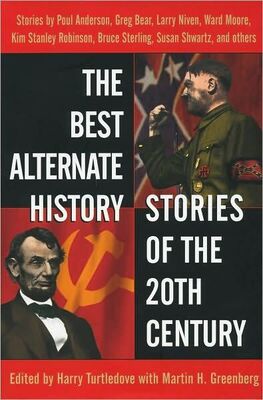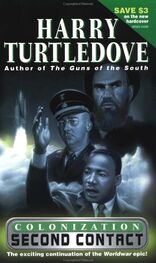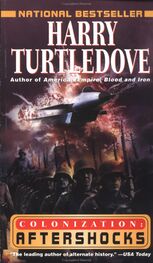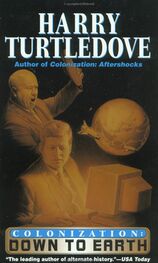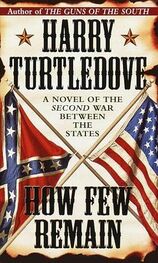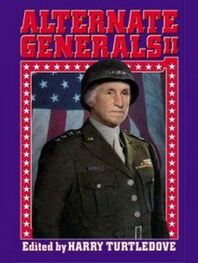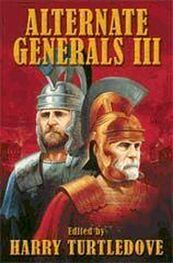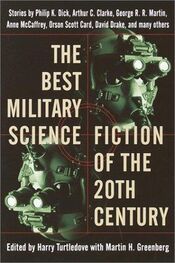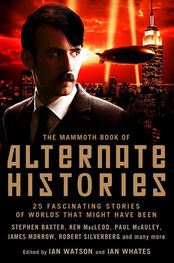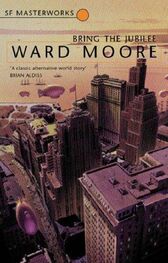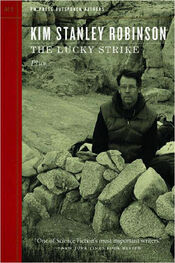“They closed the file on you,” I said. “I thought you had been kidnapped by American agents.”
“That was the cover story.”
“Then you were kidnapped by the Burgundians?”
“A reasonable deduction, but wrong. I volunteered.”
“For what?”
“Dr. Goebbels, I said that you have a cinematic imagination. That is good. It will help you to appreciate this.” He snapped his fingers and the Japanese girl was by his side so swiftly that I didn’t see where she had come from. She was holding a small plastic box. He opened it and showed me the interior: two cylinders, each with a tiny suction cup on the end. He took one out. “Examine this,” he said, passing it to me.
“One of your inventions?” I asked, noticing that it was as light as if it were made out of tissue paper. But I could tell that whatever the material was, it was sturdy.
“A colleague came up with that,” he told me. “He’s dead now, unfortunately. Politics.” He retrieved the cylinder, did something with the untipped end, then stood. “It won’t hurt,” he said. “If you will cooperate, I promise a cinematic experience unlike anything you’ve ever sampled.”
There was no point in resisting. They had me. Whatever their purpose, I was in no position to oppose it. Nor is there any denying that my curiosity was aroused by this seeming toy.
Dietrich leaned forward, saying, “Allow me to attach this to your head and you will enjoy a unique production of the Burgundian Propaganda Ministry, if you will—the story of my life.”
Without further ado he pressed the small suction cup against the center of my forehead. There was a tingling sensation and then my sight began to dim! I knew that my eyes were still open and I had not lost consciousness. For a moment I feared that I was going blind.
There were new images. I began to dream while wide awake, except that they were not my dreams. They were someone else’s!
I was someone else!
I was Dietrich… as a child.
I was buttoning my collar on a cold day in February before going to school. The face that looked back from the mirror held a cherubic—almost beautiful—aspect. I was happy to be who I was.
As I skipped down cobbled streets, it suddenly struck me with solemn force that I was a Jew.
My German parents had been strict, orthodox, and humorless. An industrial accident had taken them from me. I was not to be alone for long. An uncle in Spain had sent for me and I went to live there. He had become a gentile (not without difficulty) but was able to take a child from a practicing Jewish family into his household.
It did not take more than a few days at school for the beatings to begin, whereupon they increased with ferocity. There was a bubbling fountain in easy distance of the schoolyard where I went to wash away the blood.
One day I watched the water turn crimson over the rippling reflection of my scarred face. I decided that whatever it was a Jew was supposed to be, I surely didn’t qualify. I had the same color blood as my classmates, after all. Therefore I could not be a real Jew.
I announced this revelation the next day at school and was nearly killed for my trouble. One particularly stupid lad was so distressed by my logic that he expressed his displeasure with a critique made up of a two-by-four. Yet somehow in all this pain and anguish—as I fled for my life—I did not think to condemn the attackers. My conclusion was that surely the Jew must be a monstrous creature indeed to inspire such a display. Cursing the memory of my parents, I felt certain that through some happy fluke I was not really of their flesh and blood.
Amazing as it seems, I became an anti-Semite. I took a Star of David to the playground and in full view of my classmates destroyed it. A picture of a rabbi I also burned. Some were not impressed by this display, but others restrained them from resuming the beatings. For the first time I knew security in that schoolyard. None of them became any friendlier; they did not seem to know how to take it.
Suddenly the pictures of Dietrich’s early life disappeared into a swirling darkness. I was confused, disoriented.
Time had passed. Now I was Dietrich as a young man back in Germany, dedicating myself to a life’s work in genetic research. I joined the Nazi Party on the eve of its power, not so much out of vanity as out of a pragmatic reading of the Zeitgeist . Naturally I used my Spanish gentile pedigree, and entertained my new “friends” with a little-known quotation from the canon of Karl Marx, circa 1844: “Once society has succeeded in abolishing the empirical essence of Judaism—huckstering and its preconditions—the Jew will have become impossible.”
The Nazis were developing their eugenic theories at the time. To say the basis of their programs was at best pseudoscientific would still be to compliment it. At best, the only science involved was terminology borrowed from the field of eugenics.
I was doing real research, however, despite the limitations I faced due to Party funding and propaganda requirements. My work involved negative eugenics, the study of how to eliminate defective genes from the gene pool through selective breeding. Assuming an entire society could be turned into a laboratory, defective genes could be eliminated in one generation, although the problem might still crop up from time to time because of recessive genes (easily handled).
The decision to breed something out of the population having been made, the door opened as to what to breed for , or positive eugenics. Now, so long as we were restricting ourselves to a question of a particular genetic disease, we could do something. But even then there were problems. What if some invaluable genius had such a genetic disability? Would you throw out the possibility of his having intelligent offspring just because of one risk?
Add to this valid concern the deranged, mystical ideas of the Nazi with regard to genetics, and the complications really set in. They wanted to breed for qualities that in many cases fell outside the province of real genetics—because they fell outside reality in the first place.
During this period in my life I made another discovery. I was no longer a racist. My anti-Semitism vanished as in a vagrant breeze. I had learned that there was no scientific basis for it. The sincere Nazi belief that the Jew was a creature outside of nature was so much rot. As for the cultural/mystical ideas that revolved around the Jew, the more I learned of how the Nazis perceived this, the more convinced I became that Hitler’s party was composed of the insane. (An ironic note was that many European Jews were not even Semitic, but that is beside the point. The Nazis had little concern with, say, Arabs. It was the European Jew they were after, for whatever reasons were handy.)
Although I had come full circle on the question of racism, something else had happened to me in the interim. My hatred for one group of humanity had not vanished. My view of the common heritage of Homo sapiens led me to despise all of the human race. The implications of this escaped me at the time, but it was the turning point of my life.
Even at the peak of their popularity the world of genetics was only slightly influenced by Nazi thinking. Scientists are scientists first, ideologues second, if at all. To the extent that most scientists have a philosophy it is a general sort of positive humanism: so it was with my teacher in genetics, a brilliant man—who happened to fit the Aryan stereotype coincidentally—and his collaborator, a Jew who was open about his family background, unlike me.
They were the first to discover the structure of DNA. No, they are not in the history books. By then Hitler had come to power. The Nazis destroyed many of their papers when they were judged enemies of the state—for political improprieties having nothing to do with the research. But I was never found guilty of harboring any traitorous notions. Long before the world heard of it, I continued this work with DNA. Publishing this information was the last thing I wanted to do. I had other ideas. By giving the Nazis gobbledygook to make their idiot policies sound good, I remained unmolested. There would be a place for me in the New Order. I remembered when Einstein said that should his theory of relativity prove untrue, the French would declare him a German, and the Germans call him a Jew. At least I knew my place in advance.
Читать дальше